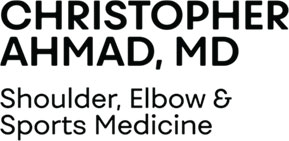As I sit down at my laptop, the serene view of the Amalfi Sea unfolds before me, and the refreshing taste of Ravello Bianca wine lingers on my palate. The beauty of this place seems to naturally inspire reflection and creativity. My new book, Anatomy of Performance, is steadily taking shape. I find myself thinking back to yesterday’s cooking class and wine tasting with Chef Patricia from Salerno. It was an experience as enriching as it was enjoyable.
The essence of the class was simple yet profound: stay true to the ingredients, and season with simplicity. Patricia, speaking in lyrical Italian, guided us through the process, while our translator, a historian and philosopher, delved into the deeper meanings behind culinary practices. “What does it mean to sit at a table and share amazing food together?” he asked, prompting a wave of thoughts about the interplay of simplicity, purity, culture, and excellence — not just in cooking, but in surgery as well.
As I contemplate these ideas, two playful dogs, Cacio and Pepe, start nudging at my legs, their friendly licks a reminder of the salty sea breeze. Their owner, a well-tanned and stylishly dressed woman, strikes up a conversation. It turns out she’s staying at the same hotel with her husband, Frankie. As we chat, I introduce myself and Beth, my wife. When I mention that I’m a surgeon writing a book about elite performance, and that I enjoy cooking cacio e pepe pizzas, Frankie’s eyes suddenly light up with interest.
Frankie, I soon learn, is not just any guest at the hotel. He is Frank Prisinzano, a celebrated Italian-American chef and restaurateur whose name is synonymous with some of New York City’s most beloved Italian eateries, including Frank, Lil’ Frankie’s, and Supper NYC. His journey to culinary fame began humbly, learning to cook from his grandmother and working his way up from washing dishes to owning multiple successful establishments. His story mirrors the dedication, passion, and relentless pursuit of excellence I’ve seen in the surgical world.
When I ask Frankie about the key to his cooking success, his response is immediate and heartfelt: “I love to serve people. I gauge their needs, their likes, without relying on recipes.” This spontaneity in cooking, driven by intuition and experience rather than strict measurement, reminds me of the way seasoned surgeons operate under pressure, relying on years of practice to guide their hands.
Frankie recounts a pivotal moment in his career that crystallized the concept of flow for him. One Saturday, with only a single kitchen assistant, he managed to prepare 200 entrées at Frank, his classic East Village restaurant. It was an intense challenge, yet he felt invincible. Time slowed down, and his actions were precise, almost automatic. Only after leaving that state of flow did exhaustion set in, a feeling I know all too well from performing multiple surgeries in a day.
“I don’t need to measure ingredients anymore,” Frankie says with a quiet confidence. “I can see when the pasta is done or when a steak is perfectly cooked just by looking at it. I know the right amount of salt for a sauce by watching it dissolve in the pot.” This level of mastery, where the cognitive load is minimal due to countless repetitions and deeply ingrained mental models, resonates deeply with my own experiences in the operating room.
Our conversation turns to the topic of training. “I never teach recipes or the exact amount of ingredients,” Frankie explains. “I teach the process.” There’s a spark in his eyes as he talks about his approach, and I can’t help but draw parallels between his world of cooking and mine as a surgeon. Both of us rely on a foundation of rigorous training and the ability to perform under pressure, where improvisation and intuition often play as much of a role as precision.
Beth, curious about Frankie’s success, asks about his management philosophy. He smiles and shares his two guiding principles: “Trust everyone until they lose it, and treat everyone like family.” It’s no surprise to learn that many of his cooks and managers have been with him for over 15 years, a testament to the loyalty and respect he fosters in his kitchens.
As our son Brady comes over joins us, having spent the summer working as a busboy in New York. Frankie’s wife Arina compliments him, saying, “You have cool parents.” Frankie’s friends, a group of wine producers and distributors from Piemonte, soon join us as well. Our conversation shifts to wine, a topic close to my heart.
Suddenly I find another thread connecting the worlds of cooking and surgery. Wine, is also an art that thrives on both mastery and intuition. The discussion flows naturally to the intricacies of viticulture, a field where precision and experience are paramount. Just as a chef learns to balance flavors and a surgeon hones their technique through countless procedures, a vintner perfects their craft by understanding the subtleties of terroir, fermentation, and aging. This is something my niece is currently studying at Cornell University, and so I am fascinated and on the edge of my seat listening as this conversation between true masters develops further. I can’t wait to get back to see my good friends at The Italian Wine Merchants in New York to relay this amazing encounter.
I learn that each bottle of wine tells a story shaped by its environment and the hands that tended it. The skillful practice of tasting and evaluating wine mirrors the refined instincts required in both cooking and surgery. It’s about recognizing the nuanced signals — whether it’s the slight variation in a sauce, the subtle shift in a patient’s response, or the delicate notes in a glass of wine. All three fields demand a deep commitment to their respective processes, where mastery comes not only from knowledge but from a profound, almost instinctive understanding developed over time. This universal language of excellence underscores how the precision of surgical techniques, the creativity of culinary arts, and the finesse of wine-making are interconnected through their shared dedication to the pursuit of perfection.
Before parting ways, Frankie and I exchange Instagram handles. Following him feels natural — I gravitate towards those who embody excellence and inspire outstanding performance. Our chance encounter in Amalfi has left me with a deeper appreciation for the art of cooking and its surprising similarities to the practice of surgery. Both require a blend of passion, precision, and a dedication to the process, proving that elite performance, whether in the kitchen or the operating room, is a universal language.
As I fly home reflecting on this incredible journey, I am filled with immense gratitude. My book writing retreat in Italy, with its breathtaking Amalfi Coast, has offered me more than just scenic beauty; it has provided a canvas for profound insights and connections. Meeting Frankie and Patricia has been an honor and a highlight, their passion and expertise in cooking mirroring the dedication I strive for in my own field. I am also deeply thankful for my wife and family, whose presence and support have made this experience even more memorable. Together, we’ve shared moments of inspiration and joy that will resonate long after we leave this enchanting corner of the world.










